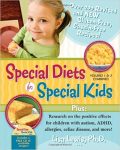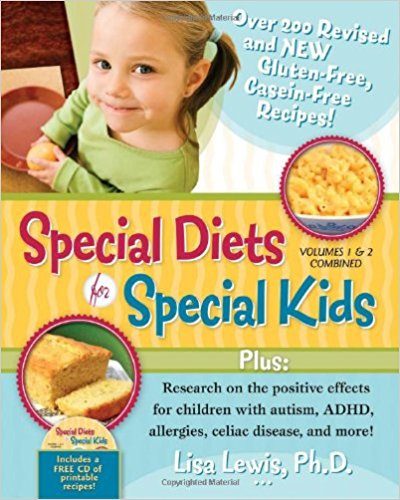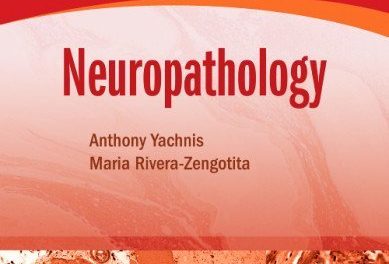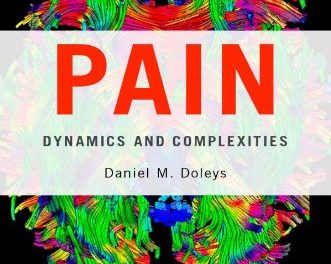 Author: Lisa Lewis, PhD
Author: Lisa Lewis, PhD
Publisher: Future Horizons – 373 pages
Book Review by: Sonu Chandiram
Certain enzymes are required to break down gluten and casein for absorption into our bodies after foods containing these elements are eaten, the author of this book Dr. Lisa Lewis points out in the initial chapter of this book .
If those enzymes do not function well, or are not found in sufficient quantities, serious neurological problems can result. Studies have shown that children with autism have a marked deficiency of such enzymes. This may explain why foods that are gluten-free and casein-free (GFCF) have yielded positive results for autistic children, including for the author’s son.
We have often read: “the proof of the pudding is in the eating.” What better way to illustrate that a GFCF diet works in improving behavior than a testimony from someone who used it for her child? Dr. Lewis presents on the inside flap of the front cover, a letter she received from the mother of an autistic child. She writes that since having him on the GFCF diet ten days ago.
- He sleeps through the night instead of waking up one to three times a night
- He regained the language that was lost three to four months ago, and has added words
- His eye contact has improved
- He has increased appetite and is eating more now
- His tantrums have gone down from ten times a day to three times a week
- “He has finally come out of the fog he was in”
This book reveals little-known facts by the broad public and even those with autistic children, about the roles certain foods play in helping autistic children improve their unconventional and unintentional socially negative behavior.
It provides numerous suggestions on meals to provide to such children, including instructions on how to prepare these foods and feed to your children.
The first three chapters provide background information on the ‘why’ and the ‘how’ of providing such foods, while the rest present the ‘what’ – the details of the recommended foods, richly illustrated with full-color photos and drawings. Below we provide you the titles of the chapters:
- Why Special Diets?
- Testing and Nutritional Support
- How and What to Feed Your Child
- Breakfast and Breads
- Drinks
- Lunchtime
- Anytime Snacks
- Dinnertime: Main Dishes and Sides
- Cheap Eats
- Holiday Fare
- Ethnic Foods
- Sweet Treats
- Odds, Ends, and Things You Should Know
This book comes with a DVD attached on the inside back cover.
Author:
Lisa Lewis earned her PhD from in Biological Anthropology from New York University, where she studied genetic variation in two species of African monkeys. Her son’s autism diagnosis and his successful adoption of the gluten-free, casein-free diet led to her award-winning Special Diets for Special Kids.
In 1999, Lisa and her co-founder Karyn Seroussi started ANDI, the Autism Network for Dietary Intervention. ANDI provides information and support to parents around the world; their years of research on the topic led to the publication of The Encyclopedia of Dietary Intervention. Lisa continues to write and to speak on the subject of dietary intervention for autism and related disorders.
Now empty nesters, Lisa and her husband Serge Goldstein live in New Jersey with pets Teddy and Murphy. Contact Lisa Lewis via email at [email protected] or the websites www.SpecialDietsforSpecialKids.com or www.AutismNDI.com where you can sign up for her electronic newsletter.







